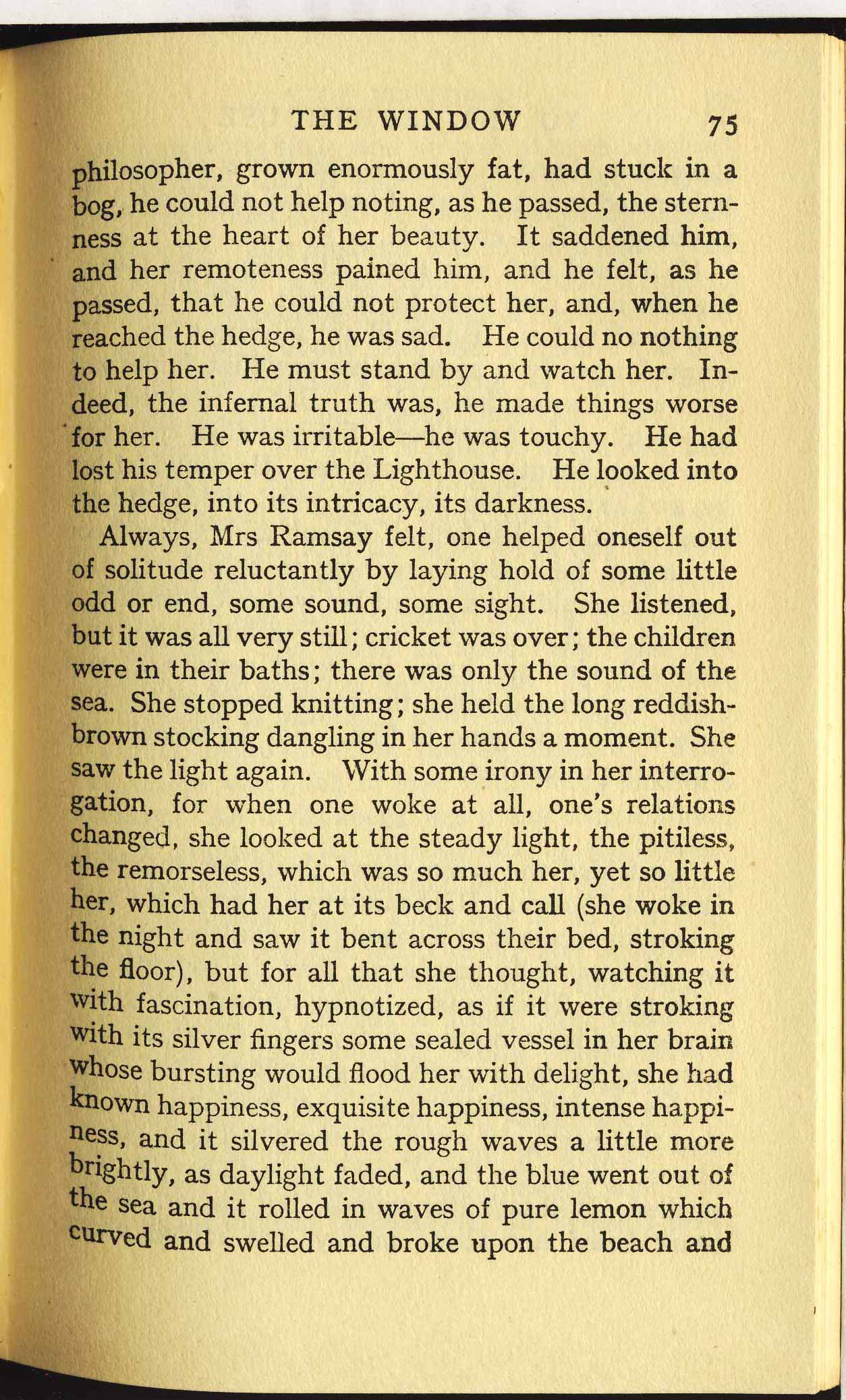
THE WINDOW 75
philosopher, grown enormously fat, had stuck in a
bog, he could not help noting, as he passed, the stern-
ness at the heart of her beauty. It saddened him,and her remoteness pained him, and he felt, as he
passed, that he could not protect her, and, when hereached the hedge, he was sad. He could no nothingto help her. He must stand by and watch her. In-deed, the infernal truth was, he made things worsefor her. He was irritable—he was touchy. He hadlost his temper over the Lighthouse. He looked intothe hedge, into its intricacy, its darkness.Always, Mrs Ramsay felt, one helped oneself outof solitude reluctantly by laying hold of some littleodd or end, some sound, some sight. She listened,but it was all very still; cricket was over; the childrenwere in their baths; there was only the sound of thesea. She stopped knitting; she held the long reddish-brown stocking dangling in her hands a moment. Shesaw the light again. With some irony in her interro-gation, for when one woke at all, one's relationschanged, she looked at the steady light, the pitiless,the remorseless, which was so much her, yet so littleher, which had her at its beck and call (she woke inthe night and saw it bent across their bed, strokingthe floor), but for all that she thought, watching itwith fascination, hypnotized, as if it were strokingwith its silver fingers some sealed vessel in her brainwhose bursting would flood her with delight, she hadknown happiness, exquisite happiness, intense happi-ness, and it silvered the rough waves a little morebrightly, as daylight faded, and the blue went out ofthe sea and it rolled in waves of pure lemon whichcurved and swelled and broke upon the beach and








